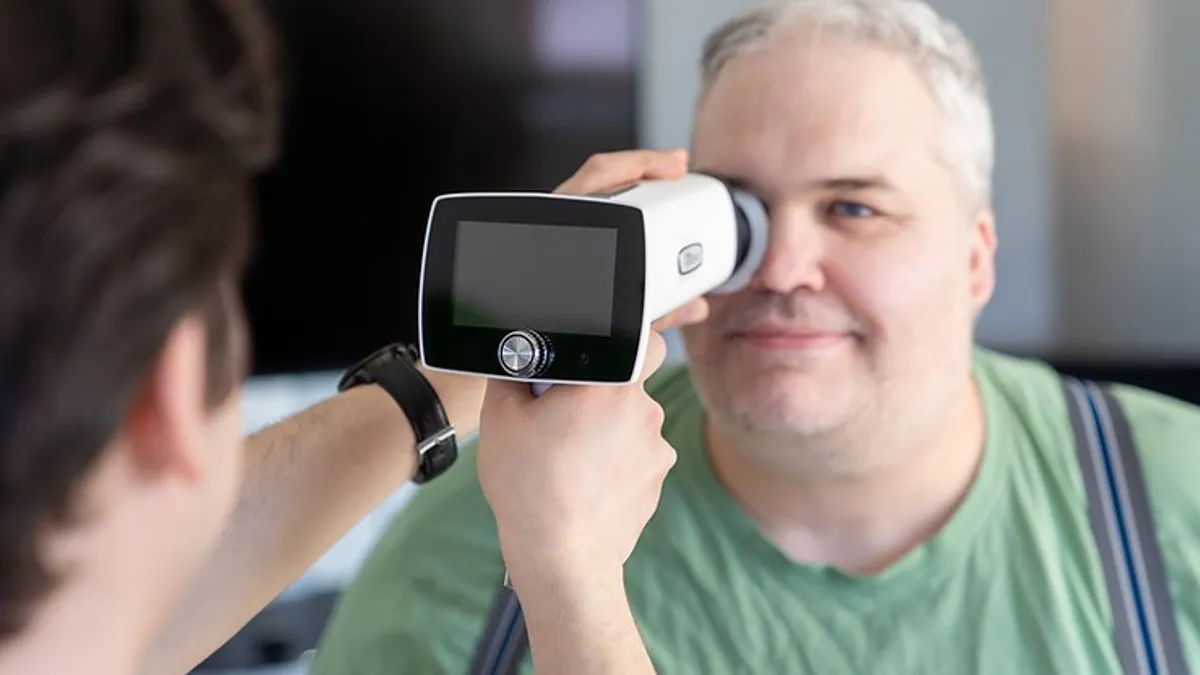Dive Brief:
- AEYE Health has received 510(k) clearance for a system that uses artificial intelligence to diagnose diabetic retinopathy from retinal images.
- The Food and Drug Administration clearance positions AEYE Health to sell a technology that achieved 93% sensitivity and 91.4% specificity in a clinical trial.
- AEYE Health is pitching the technology as well-suited to use in primary care, noting that it only requires one image per eye.
Dive Insight:
According to AEYE Health, only 15% to 50% of diabetics in the U.S. adhere to screening guidelines. The low rate of adherence raises the risk that sight-threatening diabetic retinopathy will go undiagnosed and creates the need for tools to increase the rate of screening. AEYE Health said in a statement it wants to facilitate more screening by enabling patients to get checked by their primary care clinician rather than being referred to a specialist.
The 510(k) clearance is a step toward the realization of that goal. The FDA nod covers the use of AEYE-DS with images obtained by a desktop retinal camera, Topcon NW-400, limiting use of the AI test to sites that have the imaging technology
AEYE Health is working to eliminate that barrier to the use of its diagnostic. The company has data from a trial that applied its AI to images captured by a handheld camera. In that study, the test achieved sensitivity of 91.9% and specificity of 93.6%. AEYE Health said it wants to use the pivotal data to receive FDA clearance for screening using a portable camera. Imageability in both clinical trials exceeded 99%.
“The time has finally come for autonomous screening technology to exceed the efficacy of the human expert,” Sean Ianchulev, M.D., a member of the firm’s advisory board, said in the statement. “The implications are that it can be practical for deployment on the front lines of population health — the primary care offices, where over 99% imageability and single image diagnostic acquisition are tantamount to market success.”













